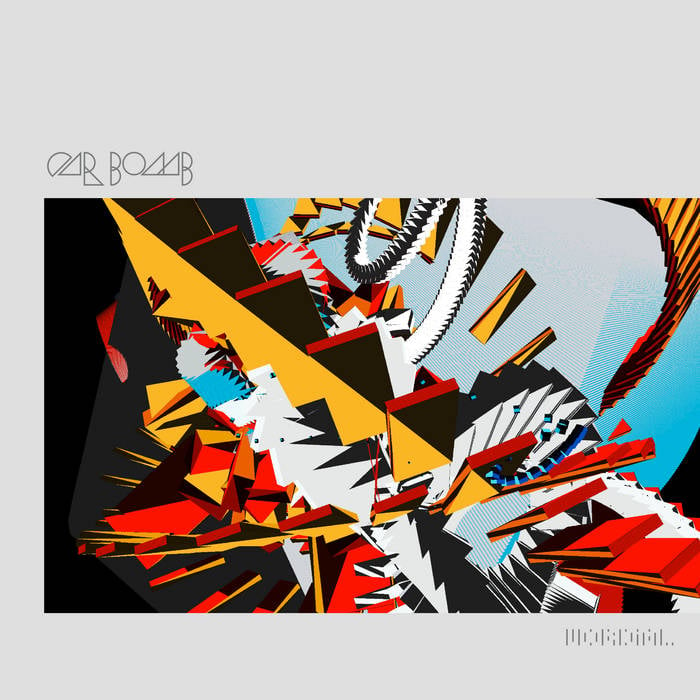You do something ON purpose or BY accident, you don’t do anything ON accident!
I get hung up on i.e. vs e.g. I’m not sure this counts as grammar though… I also understand the meaning is not very known so many people confuse the two but I wish it was overall well understood so that the message is very clear.
E.g. is used when enumerating examples, it doesn’t have to include all possibilities. Like saying “for example…”
I.e. is to demonstrate exactly what we are talking about. It’s like saying “by that I mean this”.
I know the difference between i.e and e.g. but I’ve never really seen the point in i.e. if you’re just going to enumerate what you mean anyway. It is like using “it” to replace a noun, but then explaining what you meant by “it” right next to the usage:
It (using i.e.) is like using “it” (the noun used as a shorthand for other nouns) to replace a noun, but then explaining what you meant by “it” (the noun used as a shorthand for other nouns) right next to the usage.
It’s clumsy, just use the list if you’re going to list them anyway.
I like dairy products i.e. milk cream, cheese and yoghurt.
I like milk, cream, cheese and yoghurt
I am firmly in thread-OP’s boat and wanted to disagree with you, but I searched my email/sms comment history to find examples of when I used “i.e.” (to refute you) and you’re right: I could have been more concise in every single instance.
I often used “i.e.” to essentially repeat myself… to “drive the point home”, much like I’m doing right now.
It’s something I actually hate about myself, that I ramble on and on when I’ve already made my point. Sorry to everyone that read this entire comment… I promise I’m working on it.
I understand it’s controversial, but people who don’t put the final comma in a list before “and” which then groups the final two items as one erroneously.
Also, when people put a space before a comma. I’m not sure why they do that, but it’s cemented in some people’s brains who speak fluent English from childhood onward.
The Oxford comma! I am also a fan.
I sign this as well. It’s literally a character difference and there is no ambiguity at all. There is no downside.
The downside is that with appositive phrases present the Oxford comma can introduce ambiguity:
“Thanks to my mother, Mother Teresa, and the pope.”
In the Oxford comma system this is ambiguous between three people (1. my mother 2. Mother Teresa 3. the pope), and two people (1. my mother, who is Mother Teresa 2. the pope). Without the Oxford comma it’s immediately clear that “, Mother Teresa,” is an appositive phrase.
The opposite happens as well, where Oxford commas allow true appositives to be unintentionally read as lists:
“They went to Oregon with Betty, a maid, and a cook”, where Betty is the maid mentioned.
This ambiguity is easily fixed, of course, but then again so is any ambiguity from not using an Oxford comma as well.
Note that I use the Oxford comma myself, but it’s still worth mentioning that both systems are ambiguous, just in different ways.
Interesting. I never thought of that before. Thanks!
Abberant apostrophes (and missing ones).
Sentences that miss out words for no reason: e.g. “A couple things” vs. “A couple of things”.
Confusing envy and jealousy.
The above is a personal list; I don’t get judgemental about others’ grammar but I do cringe internally.
See my comment here about why there is no such thing as confusing envy and jealousy, because “jealousy” has always included the meaning of envy for at least the past 2500 years.
Are you jealous people who aren;t bothered by those errors?
Well done on that semi-colon: really pushing my buttons!
The apostrophe thing really grinds my gears. Especially “it’s” vs “its”. It’s not very hard, “it’s” is a contraction meaning “it is”. Otherwise, it’s possessive. This homonym is its own worst enemy.
I hate that “jealousy” has devoured “envy”. “Language is fluid”, they always say, but those two words have very different meanings!
I hate that “jealousy” has devoured “envy”. “Language is fluid”, they always say, but those two words have very different meanings!
You’ll have to hate the Greeks for that then, because the usage of Ancient Greek ζῆλος (zêlos, from which we get both of the doublets “jealous” and “zealous”) already overlapped with what we now call “envy”, and this overlap was borrowed into Latin as zelosus (which still overlapped with the native Latin word invidiosus that became envy), and thence into Old French jalous, which continued to overlap with envie.
That is to say, as far back as we can trace, jealous has always also meant envious, and they’ve coexisted in that manner since at least Classical Latin.
As with most of the obnoxiously pedantic “facts” about language in threads like this one, this supposed “distinction” is recent, artificial, and only exists to give those in the know a false sense of superiority over those without the “secret knowledge”. The secret knowledge is usually (as it is in this case) literally wrong, but all that matters to them, of course, is that they have a reason to think of themselves as better than other people.
Ah, there you are.
Here I am, calling out pedants for being literally and demonstrably wrong about language for two (and a half thousand, under the sloppy reading) years and counting!
“I see your pedantry, and raise you triple-dog pedantry!”
The difference being that my “pedantry” is informed by history and linguistic theory, and is intended to stop linguistic prejudice, as opposed to the pedantry threads like this are magnets for: perpetuating linguistic prejudice while being completely wrong in the process.
Edit: Typo
‘Who’ Vs ‘whom’.
Answer the question with ‘he’ Vs ‘him’ and match the 'm’s is an easy rule of thumb.
He went to the park: who went to the park?
You called him: Whom did you call?
I understand why it’s falling out of usage, as the strong SVO eliminates the need for accusatives, I wouldn’t be surprised if ‘him’ and ‘her’ go away next. Knowing and using ‘whom’ sure helped me with the ‘-n’ affix when learning Esperanto though, also fuck ‘-n’ signed: English speakers. Replace the word with whom, him or her and if it’s clumsy you don’t need the -n.
Now, if I could just wrap my head around ‘si’ Vs ‘li’, ‘ŝi’ and ‘ri’. Or, a solid rule of thumb, that would be so nice. I promise I’m not a toddler, I just talk like one.
🎵Whom ya gonna call? Ghostbusters!!!🎵
I’m sorry
When people pretend they cannot understand a sentence becuse of a grammatical error.
If you honestly can’t parse out what a person is trying to say because they left out a comma or misspelled a word or God forbid used the wrong “their” perhaps you need to work on reading skills.
I’m sorry, but, without commas, this is just a mess, and I’m not going to torture myself into reading it.
Resistance to shifting grammar annoys me.
Educated linguists know really well that language changes over time. It is natural and expected. There are also living valid variations of grammar outside standardized “book” grammar.
People who are zero educated just go with whatever.
People who are half educated juuuust enough to be smartasses but not enough to be smart will say shit like “I don’t know, can you?” in response to “Can I go to the bathroom”. Or pretend an emphasized negation - aka double negative - can be interpreted as a positive.
A wall of text with no punctuation.
Some of mine in no particular order:
- Comma splices.
- Using apostrophes to make abbreviations plural. It’s UFOs, not UFO’s. This goes for decades, too. It’s 1920s, not 1920’s.
- Putting punctuation in the wrong place when parentheticals are involved (like this.) (Or like this).
- Same for quotations. Programmers in particular seem averse to putting punctuation on the inside where it usually belongs.
- Mixing up insure, ensure, and assure.
- Using ‘that’ where ‘who’ is more appropriate. For example, “People that don’t use their blinkers are annoying.”
Pronouncing familiar as fermiliar.
Ooooooh, mine is pronouncing onion as ungyin
This cafe

I mean I try not to be a dick about spelling and grammar and stuff these days, but come on!
I feel this way when people reference decades like, “it was acceptable in the 80’s”.
If anything, the apostrophe should be in front to denote the year being truncated: '80s
I absolutely detest the practice of saying the “the proper nouns of the world,” i.e the Tom Brady’s of the world. Or the Empire State buildings of the world. First off, it’s a proper noun. The implication of a proper noun is there is only one specific instance. Second, that’s diminishing to the proper noun used by lowering that status to the mean. Last, it’s usually used in a sports context to unnecessarily group up a bunch of players even though we already know the context of why they’re being grouped up for comparison. It’s just fucking dumb. It really grinds my gears.
Oh, great, now I’m going to notice this one too. Thanks for causing me more consternation.




